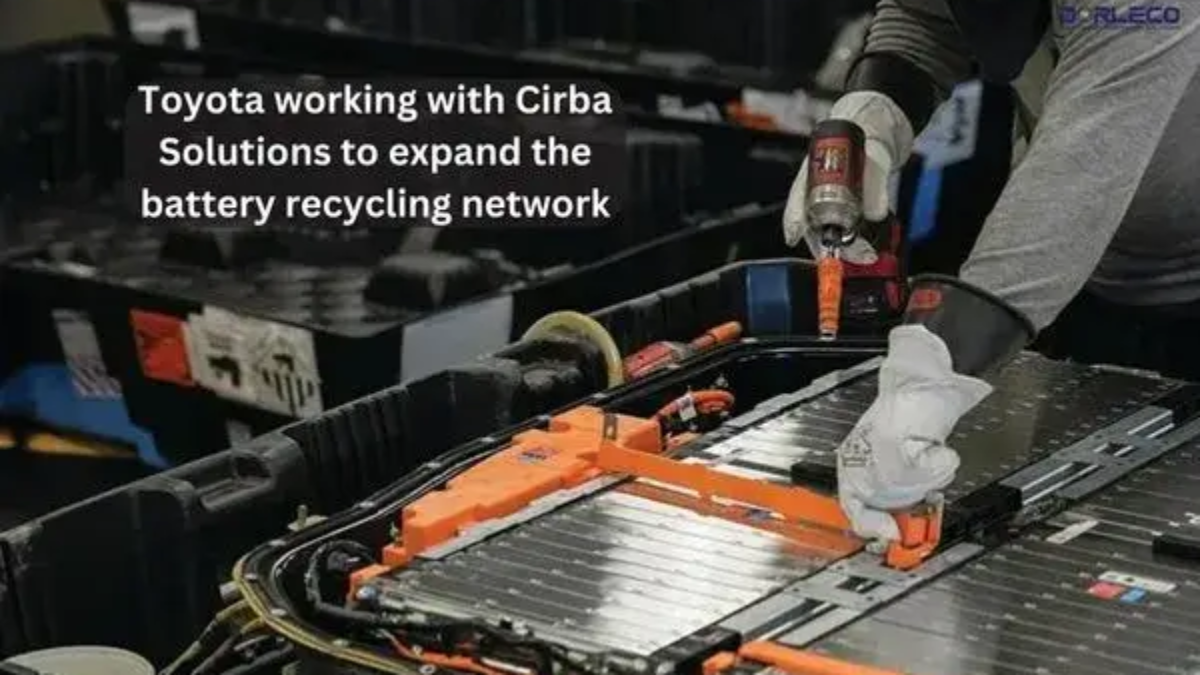To serve the expanding EV market, the companies have agreed to collect, store, test, and process batteries.
With a partnership with Charlotte, North Carolina-based battery recycler cirba-solutions, Toyota Motor North America, with its headquarters located in Plano, Texas, claims it is growing its network of battery recycling facilities.
By broadening Toyota’s battery recycling network and streamlining its logistics network for end-of-life battery collection for electric (EV), hybrid, and plug-in hybrid vehicles, the businesses claim the arrangement would strengthen their already strong partnership.
Christopher Yang, group vice president of business development at Toyota Motor North America, states, “Cirba Solutions’ large and well-established transportation and recycling network ensures Toyota has nationwide battery collection and recycling to reduce both our costs as well as our operational carbon footprint.” “This brings us one step closer to realizing our dream of developing a closed-loop, sustainable ecosystem for our car batteries.”
cirba-solutions, one of the biggest battery recycling networks in North America, provides a network of collecting and recycling facilities from coast to coast. According to the corporations, their collaboration will concentrate on gathering, moving, breaking down, and processing lithium-ion batteries (LIBs) that have reached the end of their useful lives from the Midwest and East Coast areas.
Processing will be done in Cirba’s Lancaster, Ohio, location. As part of the Bipartisan Infrastructure Law, the facility recently secured a grant worth over $82 million from the U.S. Department of Energy. According to cirba-solutions, the factory would employ cutting-edge technology to recover up to 95% of the vital minerals from trash and end-of-life batteries, reintroducing battery-grade metals into the supply chain.
According to Cirba Chief Commercial Officer Jay Wago, “Our partnership with Toyota contributes to the long-term vision of a sustainable closed-loop battery supply chain.” “We are happy to be a partner with Toyota’s expanding electric vehicle lineup in North America and our shared purpose.”
According to Toyota, it currently gathers about 25,000 used car batteries annually from its network of dealerships, mostly nickel-metal hydride batteries, which are found in its hybrid electric vehicles. The company anticipates that this number will increase as it sells more battery recycling network-electric vehicles in the future. Toyota claims that by focusing on the Midwest and East Coast regions and lowering the average miles driven for collection and recycling from 1,251 to 582, based on data from 2022, it hopes to cut its overall transportation and logistics expenses by at least 70 percent through its deal with cirba-solutions.
According to Toyota, in certain areas, like the Cincinnati area, the new recycling partnership should result in a 94% decrease in the overall miles driven for these purposes. Furthermore, the carmaker states that it anticipates being able to significantly lower transportation-related emissions by cutting the distance traveled for collection and recycling activities.
Since 2000, Toyota claims to have sold more than 6.2 million hybrid and plug-in hybrid automobiles. The firm notes that after decades of EVs being sold, it is now concentrating on finding new uses for automobile batteries that were once used in its EVs but are now nearing the end of their useful lives. By 2030, the company predicts that this number will probably double.
Toyota is also building a called Toyota Battery Manufacturing North Carolina (TBMNC). The project is expected to be operational by 2025, according to the business, which has committed about $14 billion in funding. The North Carolina plant, which was first revealed in 2021, would gradually increase output and help create over 5,000 new jobs to support cars that are produced in the country.

